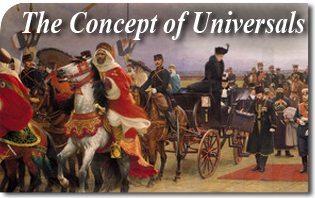 We should seek the universality of things and not just limit ourselves to the immediate thing at hand. If we do not form an idea of the entirety of something, of its universality coupled with all its hierarchical values, we will not be able to insert what we know into any broader order of things and as a consequence, we will not function well. We will not know how to function well in any larger order of things.
We should seek the universality of things and not just limit ourselves to the immediate thing at hand. If we do not form an idea of the entirety of something, of its universality coupled with all its hierarchical values, we will not be able to insert what we know into any broader order of things and as a consequence, we will not function well. We will not know how to function well in any larger order of things.
For example, as a child I felt a certain interest for the Sultanate of Zanzibar. I had a collection of stamps from Zanzibar that lead me to imagine what that sultanate was like. I imagined a Sultan inside a micro-fairyland, which made my impression interesting. If you told me that there had been an earthquake that killed 300 thousand people from various countries, I would have been sad as we all would. But, if you told me that the earthquake had annihilated the island of Zanzibar, and with it the Sultanate, my personal reaction would have been much stronger. Why? Because 300 thousand people from various countries is not a whole. The sultanate forms a whole that is complete with its own characteristic features. If that whole were to disappear, it would be the disappearance of something much more than the sum total of individuals that comprised it.
This notion of the whole is reflected very well in organic society that can be seen first in the family. Then we see it in a town or city; then in a region; in a nation and finally, the nation as part of the world. Each maintains its individual characteristics, yet there is a collection of characteristics that form a whole while respecting the individual characteristics of its constituent parts. They are small universes fitted into larger universes. These in turn form part of even larger universes and lastly a universe that is a sort of an absolute or total universe, which is a closed and sovereignnation.
This concept contains something very ordered and organic, without which one cannot imagine well-constructed forms of government or other forms of social organization.
The preceding text is adapted from a lecture Prof. Plinio Corrêa de Oliveira gave. It has been translated and edited for publication without his revision. –Ed.

